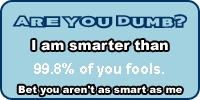Anathem, by Neal Stephenson
A book review
From the word “anthem” meaning “a piece of sacred vocal music” and from the word “Anathema” meaning “a formal ecclesiastical ban, curse, or excommunication.”
This is the title of Neal Stephenson’s latest book. Now, I usually read science fiction and fantasy. I had never before read Stephenson because he is not a pure genre author. Most of his work falls under the category of historical romance. Some of his work is alternate history/near future. And his earliest work has been described as cyberpunk. None of these are genres or subgenres that hold any interest for me.
Then Stephenson wrote Anathem. The pre-release work-up in Locus was interesting, and I thought, “I might give it a read once it’s out in paperback.” But as the release date grew closer, I found myself thinking about the concept of the novel that I’d read about. And if I am thinking of a book I haven’t even read, well, I take that as a sign. I bought a copy, in hardcover, which I am loathe to do if it’s an author I don’t know, trust, admire, love, etc.
The first thing I noticed was that the book was 900 some odd pages long. Long books don’t scare me. I read Hubbard’s Battlefield Earth because it was a long book. I read very fast, you see, and frequently run out of book long before I’m ready to leave the story. My favorite authors, who by sane standards are prolific, don’t write fast enough to suit me. So long books don’t scare me.
I settled down to start reading Anathem. I thought it would take me several days to read it because I lack the time to devote to intensive reading right now, what with NaNoWriMo, the revision of my own book, school etc. Nuh-uh. Just over a day. Why?
Because Anathem is a complex book with many themes and concepts interwoven and I was afraid that if I put the book down for any great length of time, I’d lose the thread of it. At the same time, I found the book insightful, funny, and absolutely brilliant. And more importantly, it was an awesome read. I read a lot of books. This is the best book I’ve read in well over a year.
From the beginning the concept grabbed me. The plot took two hundred pages to show up, and I didn’t care. The concept, the background, the sheer detail of the fascinating world-building held me spellbound. Then when the plot did show up, it got even better! It alternated between philosophy and action and politics and science and math and religion. Any concept you can name was probably thought about at some point during this novel.
Anathem is what science fiction used to be. It is what science fiction should be. This is not a rehashing of the typical sci fi plot involving rockets and space colonization. It isn’t thinly veiled socio-political commentary. It isn’t space opera with nothing but lip service paid to the science aspect of sci fi. No, it’s innovative. It’s like 40s sci fi writ anew, based on modern science. Not Newtonian or Einsteinian physics, but sciences like quantum mechanics.
The science is dazzling, well researched, and logically presented in such a way that the average reader probably can understand most of it. Ditto for the math. And the characters are human, believable, and likeable. They make you want to keep reading to find out what happens to them next. All the way to the end of the novel. At which point, I heaved a huge sigh and said, “I wish there was a sequel.” Of course, the odds are slim, I think Anathem was written as a stand-alone, but still, what a wonderful, wonderful book.
Here’s hoping that Stephenson considers writing another book in the same world.







